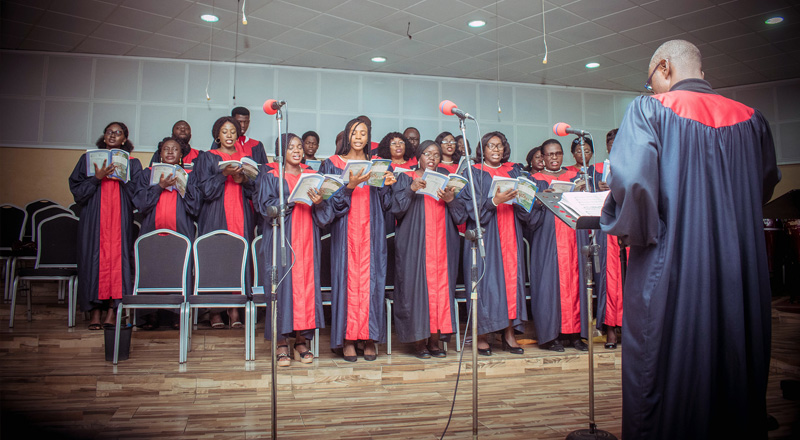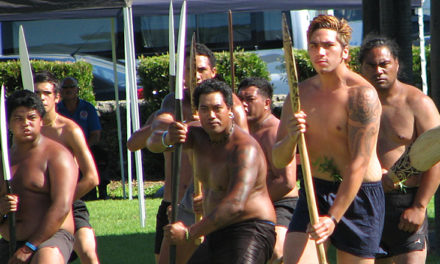Singing In The Reign
Tena tātou katoa e te iwi mīhana… (Greetings to all the people in mission),
This month’s whakataukī (proverb) is: “Nā te pō, ko te ao, ko te waiatatia o te Atua..” (In the beginning, God sang the world into existence). Or, more literally, the full proverb says, “It was in the night that the gods sang the world into existence. From the world of light, into the world of music”. God/gods, it is difficult to tell whether or not to capitalise the word when interpreting te reo Māori (Māori language). But the two can reasonably be fused together, since, biblically, the lesser created beings derive their life from and do the bidding of the greater pre-existent being we call God. So, who sang the world into existence? Ultimately, the Great Creator.
(Tolkein’s) Silmarillion creation story is remarkably similar to Māori tradition.
I am enjoying watching Rings of Power, the new prequel to the Lord of the Rings. It is stylistically different from Peter Jackson, but nonetheless honouring to the work of the famed Christian mythologist, J R R Tolkein. The latest series is derived from the piecemeal works within Tolkein’s tales of the Silmarillion. In that book Tolkein recounts the beginnings of the cosmos, out of the great void in which existed only Eru (also called Ilúvatar), Tolkein’s equivalent of the Hebrew Creator (Elohim, Yahweh, Adonai, etc). I can find no direct reference to Tolkein being exposed to Māori mythology, only Norse, but his Silmarillion creation story is remarkably similar to Māori tradition, as told by Rev Māori Marsden in his writings collected in “The Woven Universe”.
Both accounts embellish Genesis 1 and John 1 with beautiful mythos that, while not Scripture, resonate with biblical fidelity. In both accounts, Io (Māori)/Eru (Tolkein)/God orchestrates the singing of the material world into being out of God’s communal essence, pre-existent in the great nothingness. The Bible doesn’t actually say creation was formed from ex nihilo (out of nothing) because it is sourced in God’s vital essence, but it was ‘nothing’ in a material sense. John testifies to as much, for in the beginning was the λόγος (logos), consciousness realised or the thought made manifest—that’s not nothing. We translate logos as ‘word’, but it is a rather bland and easily overlooked interpretation.
Is it not reasonable to imagine that the logos sang the world into being?
Since all of creation resonates at certain frequencies—for example, granite stone hums at 6900Hz and sandstone harmonizes at 8700Hz, light has frequencies, the frequency of human music tuning is around 432-440Hz—is it not reasonable to imagine that the logos sang the world into being?
I am not trying to put forth any new doctrine or counter traditional orthodoxies regarding the creation of the universe, but to broaden our imagination and theologically connect our lived reality with revelations about our God in the Bible. Part of our lived reality is music and music remains a mystery to science. Some tests have been done concerning the effects of music on the human being. Most of us respond differently to different musical frequencies, and we express and feel emotion in musical forms. Science can determine the ‘what’, but not the ‘why’. As a singer, I can testify to the unique dynamic experienced in corporate singing that is transcendent and transformative. I experience this powerfully when participating in a collective vocal harmony, such as the peoples of Te Moananui a Kiwa (Pacific Ocean) love to do.
A study published in 2015 found that singing as part of a group speeds up and reinforces social bonding and has a multitude of positive wellbeing effects, personally, socially, and we could add, spiritually. This should not be surprising since the young David, teen musician, was so well known for his craft that he was called upon to play healing music for the depressed and anxious King Saul, which the tormenting spirit could not abide (1 Samuel 16:14-23).
As Laidlaw College Principal and Evangelical historian Dr Roshan Allpress has noted, the Evangelical movement became a worldwide phenomenon in no small way due to a hymnbook that spread throughout the colonies, solidifying a sense of common identity and fresh theological commitment. Whenever strangers met within this tradition, the familiar hymns soon bound their hearts to one another. One could argue that similar happened during the Charismatic wave of the 70s/80s with Scripture in Song songbooks. Even Hillsong among other popular worship music producers, has had a unifying effect on the rise of World Christianity, as Pentecostal as that rise is. Even indigenous worship is taking similar forms as this list of top Ghanaian worship songs suggests.
Singing still has a generative effect.
I believe singing still has a generative effect. It may no longer conjure matter out of consciousness but it can still inspire and motivate toward great creativity. In their bonding power, songs, like those gospel laments sung by gangs of slaves, can energise us in our work, especially if they contain sound theologies of eschatological hope—for deliverance, healing, relief, rest. Songs sung together about a shared vision of a desirable future have power to create that future.
We all have a unique voice to add to the song of the Spirit as we follow the Spirit in our harmonious participation in God’s mission. To ground the metaphor beyond the mere use of our voices, our song is our doing.
It is our unique contribution in fulfilment of God’s purposes in the world alongside that of others, which creates a kind of harmony, a harmony of action. In that vein then, let us keep singing, fitting our unique voice in among myriad others, as we #stayonmission.
Arohanui ki a koutou e haere ana ki te ao (love to you all as you go into the world),
Jay






